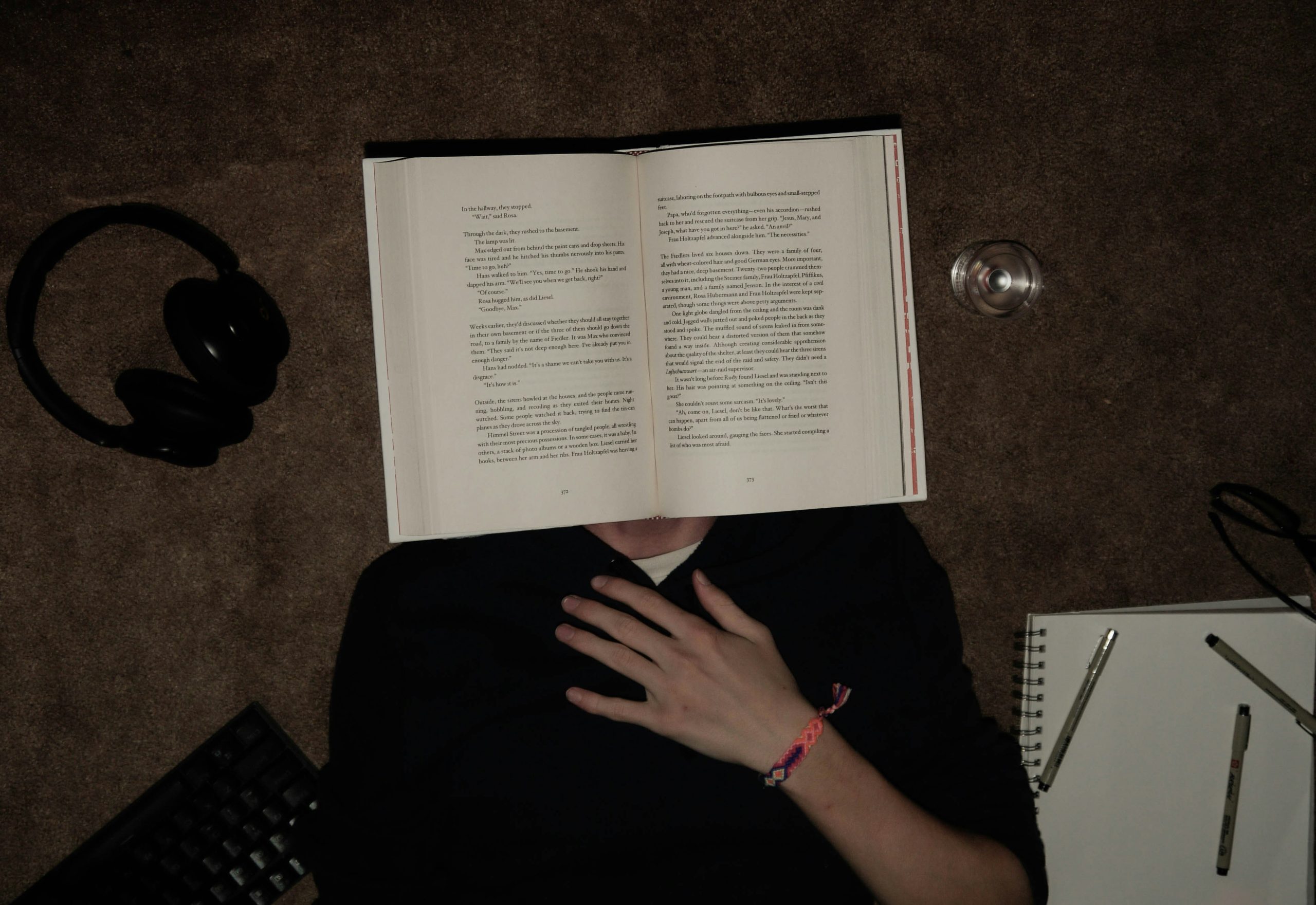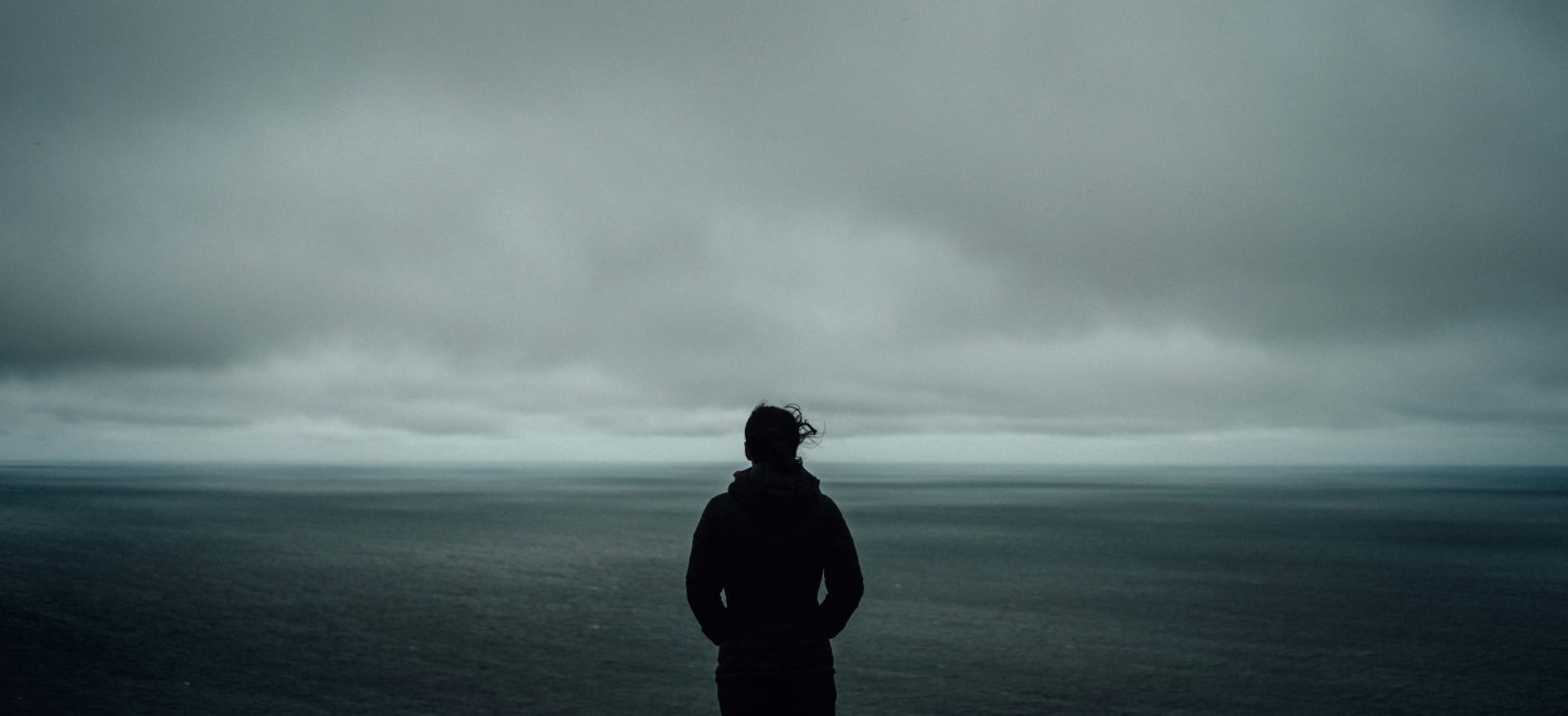interviews
Reading True Crime Memoir Helped Me Lay Claim to My Own Traumatic Story
Piper Weiss’s “You All Grow Up and Leave Me” tells a crime story from the perspective of a bystander, and showed me how I could do the same

I have never been a person who actively sought out crime dramas, much less true crime. I grew up with a mother who watched episode after episode of Law and Order: SVU, and I remember remarking to her once, “Why would any woman want to watch a show entirely devoted to rape?” My friends watched shows like CSI and Investigation Discovery, or nurtured childhood serial killer obsessions. The concept baffled me. They were entertaining themselves with tragedies that could have happened, or did happen, and could have happened to them.
I’ve shied away from true crime because, personally, I’m absolutely terrified of just about everything. I collect phobias the way many people collect books or figurines — just picking them up every place I go. I’ve always been anxious, but a brush with death as a teenager only made it worse. When I was 16, I was stuck inside my high school as a record-breaking tornado struck the building, killing eight of my classmates and injuring countless others. It’s been over 10 years now, and much of me still feels like I’m living inside the 4 minutes it took for the tornado to touch down and destroy the part of being a child we are all entitled to: the complete and utter ignorance of death, and of the ways in which my body was out of my control. I spent the rest of my adolescence hyper-aware of all the ways I could die; the idea of reading true crime felt like poking a wound.
I spent my adolescence hyper-aware of all the ways I could die; the idea of reading true crime felt like poking a wound.
But then one day I was depressed and unmotivated, lying on the couch flipping through Hulu, and I unexpectedly found myself scrolling back to SVU over and over again, my thumb lingering over the button. When I decided to play the pilot, I was thinking of my mom, who I missed so desperately, and I was thinking about a story I had just read, by Carmen Maria Machado in her collection Her Body and Other Parties, which I had been given to review before it was released. Machado’s story “Especially Heinous” rewrote the episode synopses for all 270 episodes of SVU. She’s said since then that the story is one of the most polarizing moments in the collection, but I loved it. I read it, and the next day I found myself watching the show.
After that, crime dramas and true crime became something I sought out, though I would be hard-pressed, even now, to explain why. Suddenly, a genre I long avoided pulled at me. In the beginning, I thought I was filling the hole that SVU left behind — I enjoyed the mystery of it, the twists revealed in the last few moments, and, as much as I hate to admit it, I found myself enthralled by the horrible, gruesome crimes. It was good storytelling, I told myself. But when I moved from fictional police procedurals loosely based on actual crimes and moved onto true crime, I realized it was less about the storytelling and more about confrontation. I felt addicted to confronting things that terrified me, like it was a thrill. I would read longform investigative journalism about unhinged roommates and power-drunk lawyers; I watched true crime documentaries on Netflix. I had nightmares, I became jumpy, and I walked quickly from my car to the apartment when it was dark, but I couldn’t stop. The wound was open, and I was poking and prodding like it was a compulsion.
Finally engaging with true crime changed the way I think about the genre; it still makes me anxious, but I feel like that anxiety has a purpose. But more than that, it changed the way I think about writing. Even before I became a true crime convert, I’d begun to slowly build my writing career on the foundation of my own trauma: telling the exact same story over and over again. I’ve written about my near-death experience through the lens of Harry Potter; I recalled a time when my master’s thesis, about Flannery O’Connor and female Medieval mystics, was a way for me to root myself in my own traumatic experiences; and I’ve written strange narrative nonfiction essays that I was too afraid to turn into a proper memoir. I knew the idea of confronting my trauma head-on made me anxious; I knew this was why I kept approaching it sidelong. But watching and reading true crime helped me understand what, exactly, I was frightened of. I’m afraid that I’ll misremember this terrible thing that happened to me, and I’m afraid that, in my retelling, I’ll offend the hundred other people who shared the same experience. Reading true crime stories, which are, at their core, true reports of trauma, I realized that I’ve been writing around something, that I’ve been too afraid to face it, because I worry that I can’t do it justice — or worse, that I have no business writing about my own trauma at all. Rather than reporting on my experience, retelling it scene by scene, I’ve only gestured toward it. Is it my story to tell? It happened to me, it changed me, but I didn’t die. I didn’t lose best friends or lovers or siblings. Why am I the one who gets to speak? And what if I do it wrong?
Is it my story to tell? It happened to me, it changed me, but I didn’t die. I didn’t lose best friends or lovers or siblings. Why am I the one who gets to speak?
In this respect, Piper Weiss’ You All Grow Up and Leave Me, billed as a true crime memoir about Weiss’ experience as a student of the tennis coach-turned-stalker Gary Wilensky, was a revelation. I went looking for it because the fusion of genre intrigued me: it seemed to answer so many questions I had about how I might begin to tell my own story. It reinforced my suspicions that simply retelling what had happened to me wasn’t going to be possible for me, I wasn’t going to be reporting on my own trauma while removing myself from it. That’s not possible. But I also hoped it would ease fears I had about getting too close to the story and owning collective trauma that might not necessarily belong to me.
Knowing only vaguely what it was about, I looked up reviews. A particular trend piqued my interest: reviewers complained that Weiss, who studied with Wilensky but was not abused by him, had no standing to write her story. One complained: “85% of this book was boring stories about the vapid author and her completely average teen life and friends. Most of it had nothing to do with Gary Wilensky and his crimes.” Another: “Entirely too much detail about the author’s uninteresting life as a teenager…I mean, where is the story here? Cut to the chase!” And another: “This is a deeply self-indulgent book.” It was as if the reviewers were channeling my worst fears. I bought it immediately.
You All Grow Up and Leave Me is a fusion of reportage and memory, a retelling of a horrific event told in a brazenly emotional way by a woman who witnessed it peripherally. Weiss defiantly uses the backdrop of a crime to revisit her own teenagehood, her trauma and the fraught feelings of jealousy and guilt that can only come from escaping a life-changing event that happened to everyone but you. That so many had disliked this book on the basis of those things, because Weiss dared to write a book about an experience that happened to her, but didn’t happen to her enough, sold me on it immediately. The phrase “true crime memoir” ensnared me, the very idea of it so rich with possibilities. It seemed to me that the goal of true crime-memoir is to maintain a safe enough distance that you can be objective, while simultaneously blending in the most subjective of devices: your own memory.
In the Venn diagram of truth and trauma, true crime memoir sits in the middle overlap, unrepentant. It says, “This is a thing that happened to me, and facts alone are not enough to tell this story.”
Piper Weiss and I had entirely different adolescent experiences. She grew up a wealthy Jewish teenager on New York’s Upper East Side, attending private schools and taking tennis lessons. I grew up a middle-class half-Arab teenager in the suburbs of Alabama, in public school classes with the same kids for all 12 grades. But we share a peculiar experience: the life-altering force of trauma on top of the already traumatizing nature of being a teenager. This is the crux of Weiss’ memoir — the confusion, guilt, and fear that’s inextricably tied with being a teenage girl, magnified by her proximity to the incomprehensible crimes of an abuser she once considered a friend. Reading You All Grow Up and Leave Me, I was left with thoughts about my own writing, my own navel-gazing. Could I be as brave as she was? To write a confessional book about something that ruined people’s lives, but left me relatively unscathed? I found the answers in the same pages I found the questions — Weiss isn’t being self-indulgent, as one reviewer put it. Or rather, she is, but why shouldn’t she be? The thing about collective trauma is that it’s almost never an equalizing force: someone always had it worst. But trauma ripples outward; tremors are felt by everyone in its proximity. My entire life was completely changed inside those four minutes when I was 16, sitting in my high school and waiting to die, and I get to own that.
The thing about collective trauma is that it’s almost never an equalizing force: someone always had it worst. But trauma ripples outward; tremors are felt by everyone in its proximity.
My current true crime read is Michelle McNamara’s I’ll Be Gone in the Dark, a book wait-listed in libraries across the country after the Golden State Killer, the subject of the book, was identified. There’s a line early on where McNamara turns the lens inward, to try and decipher why she has always been obsessed with cold cases and serial killers. It started with a crime near her childhood home, an unsolved murder of a young female jogger. She remembers being asked why she felt compelled to solve it, and she writes, “I need to see his face. He loses power when we know his face.”
There’s no crime to be solved in Weiss’ memoir. Gary Wilensky committed suicide before he could be caught, and he left detailed sketches and notebooks about his intended crime: the rape and torture of a teenage girl he’d been stalking for years. There were no clues to follow, no linear structure of questions leading to an answer at the end — but the method is the same. It’s still an uncovering. This is a different way to look at memoir, but it’s not that different at all. We write memoirs and confessional essays because we’re trying to see a face — even if sometimes, the face is our own. The writing of a memoir sometimes feels like the telling of a crime.









